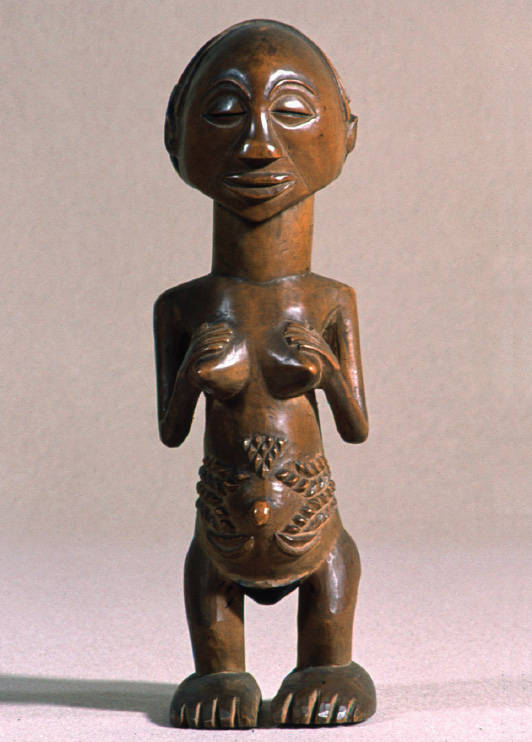Society and Religion

In the thousand years or so (500–1500 C.E.) that followed their initial colonization of Africa south of the equator, agricultural Bantu-speaking peoples also created a wide variety of quite distinct societies and cultures. Some—in present-day Kenya, for example—organized themselves without any formal political specialists at all. Instead they made decisions, resolved conflicts, and maintained order by using kinship structures or lineage principles supplemented by age grades, which joined men of a particular generation together across various lineages. Elsewhere, lineage heads who acquired a measure of personal wealth or who proved skillful at mediating between the local spirits and the people might evolve into chiefs with a modest political authority. In several areas, such as the region around Lake Victoria or present-day Zimbabwe, larger and more substantial kingdoms evolved. Along the East African coast after 1000 C.E., dozens of rival city-states linked the African interior with the commerce of the Indian Ocean basin (see Sea Roads: Exchange across the Indian Ocean).
Many societies in the Bantu-speaking world developed gender systems that were markedly less patriarchal than those of established urban-based civilizations. Male ironworkers in the Congo River basin, for example, sought to appropriate the power and prestige of female reproductive capacity by decorating their furnaces with clay breasts and speaking of their bellows as impregnating the furnaces. Among the Luba people of Central Africa, male rulers operated in alliance with powerful women, particularly spirit mediums, who were thought to contain the spirit of the king. Only a woman’s body was considered sufficiently strong to acquire this potent and dangerous presence. Luba art represented female ancestors as “keepers of secret royal knowledge.” And across a wide area of south-central Africa, a system of “gender parallelism” associated female roles with village life (child care, farming, food preparation, making pots, baskets, and mats), while masculine identity revolved around hunting and forest life (fishing, trapping, collecting building materials and medicinal plants). It was a “separate but equal” definition of gender roles.20
In terms of religion, Bantu practice in general placed less emphasis on a High or Creator God, who was viewed as remote and largely uninvolved in ordinary life, and focused instead on ancestral or nature spirits. The power of dead ancestors might be accessed through rituals of sacrifice, especially of cattle. Supernatural power deriving from ancient heroes, ancestors, or nature spirits also resided in charms, which could be activated by proper rituals and used to control the rains, defend the village, achieve success in hunting, or identify witches. Belief in witches was widespread, reflecting the idea that evil or misfortune was the work of malicious people. Diviners, skilled in penetrating the world of the supernatural, used dreams, visions, charms, or trances to identify the source of misfortune and to prescribe remedies. Was a particular illness the product of broken taboos, a dishonored ancestor, an unhappy nature spirit, or a witch? Was a remedy to be found in a cleansing ceremony, a sacrifice to an ancestor, the activation of a charm, or the elimination of a witch?21
Unlike the major monotheistic religions, with their “once and for all” revelations from God through the Christian Bible or the Muslim Quran, Bantu religious practice was predicated on the notion of “continuous revelation”—the possibility of constantly receiving new messages from the world beyond. Moreover, unlike Buddhism, Christianity, or Islam, Bantu religions were geographically confined, intended to explain, predict, and control local affairs, with no missionary impulse or inclination toward universality.